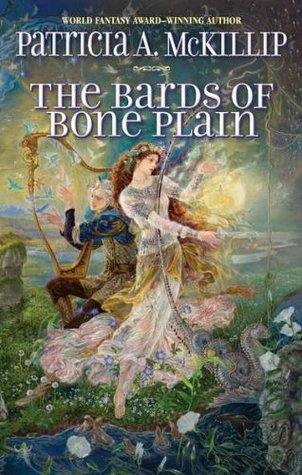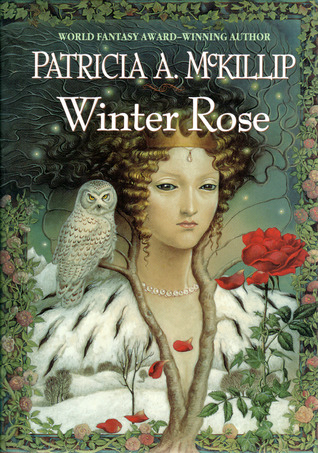I received this book for free from the library in exchange for an honest review. This does not affect my opinion of the book or the content of my review.
Source: the library
Wonders of the Invisible World
by
Patricia A. McKillip
fantasy in Paperback edition that was published by Tachyon Publications on September 26, 2012 and has 288 pages.
Explore it on Goodreads or Amazon
Other books by this author which I have reviewed include Solstice Wood, In the Forests of Serre, The Bards of Bone Plain, Ombria in Shadow, Alphabet of Thorn, Od Magic, Harrowing the Dragon, Song for the Basilisk, Kingfisher, Winter Rose
An anthology of sixteen short stories about fey, magic, and fairytales with an introduction by Charles de Lindt and an essay on what inspires McKillip.
My Take
This was a mixed bag of huh-what and wonderful. Sadly, McKillip says she has come to the end of this type of fey story. If she is, then she’s gone out with a whisper and not a bang.
The Stories
“Wonders of the Invisible World” is time traveling science fiction with a researcher wanting Cotton Mather’s emotions. It’s a quick blip into two worlds: the future and the close of the Salem witch trials. I certainly do understand why Nici feels as she does at the end, even if it is rather vague.
“Out of the Woods” is an atmospheric old-timey story that parallels our own age of materialism with a wife working outside the home while having to still do the cooking and cleaning while her husband is out working and drinking. A very unsatisfying story that never concluded.
“Kelpie” was amazing. Okay, yeah, I’m prejudiced. There was a Pre-Raphaelite feel to the artists and their lifestyles — I’m probably being influenced by the cover art! I love the world into which McKillip took us, spending time creating a world of working and playing artists. The set-up with the wicked, self-centered Bram Wilding and his attacks on Emma’s thoughts. Ned Bonham’s protective stance as he tries to give her room. Followed by the denouement at Ned’s country house.
Definitely one of my favorites in this collection.
“Hunter’s Moon” left me hanging with the innuendo at the end. And hoping that McKillip will follow up on the Hunters. It’s really Dawn’s adventure with her little brother along for the ride with their father and Uncle Ridley. They’re out hunting deer while Dawn is with a Hunter. One who is not what he seems. Very vague.
“Oak Hill” is another odd one. I don’t really see the point of this one; it’s a simple blip between running away and finding strength, possibly a hint of self-esteem for a woman who believes it when told she’s ugly. It’s almost a metropolitan Wild Hunt crossed by entrepreneurial hippies as Maris searches for a teacher of magic.
“The Fortune-Teller” is almost karmic as the thieving Merle encounters an unwelcome revelation. Another vague tale that I enjoyed for how McKillip got into the adaptable mind of a pickpocket and her casual approach to ownership.
“Jack O’Lantern” is another pip, although vague again. Using an arranged marriage and the need for a portrait of the wedding party — be sure to read mother’s explanation of how sex works with their oysters and pearls and water of life, McKillip gives a personal twist to the Will o’ the wisp.
“Knight of the Well” is one of my favorites in this anthology. McKillip creates an entire world in this short with its own culture and worries while fiddling in a sweet, unrequited romance. Very nice twist.
“Naming Day” was good! The selfishness of teens who are too important for their own good. At least she learned her lesson quickly!
“Byndley” is one of the lovely ones with a mage feeling the heavy weight of remorse who is trying to make up for his past behavior. Nice twist at the end.
“Twelve Dancing Princesses” is a twist on one of Grimm’s fairytales.
“Undine” was a lovely twist on the usual in which a water fey kidnaps a human and takes him home with her. Something just always seems to come up.
“Xmas Cruise” is irritatingly vague about a loving husband who gifts his wife with a cruise around Cape Horn and Tierra del Fuego with a concentration on Gaia, and they end up swapping with another couple. I think.
“A Gift to Be Simple” is an odd look at a religious sect that is dying out and the lengths to which they will go to ensure their group continues on into the future.
“The Old Woman and the Storm” is a whole lotta metaphor of a lover who no longer recognizes his love. Interesting, yet vague.
“The Doorkeeper of Khaat” is one of those huh-whats. There’s a lot of vague prose about Kel and his drifting throughout the land, being a poet only to be called home when his father is dying with one last request. A wish that will open a doorway in the world of the Khaati.
The Cover and Title
The cover is similar to others in her fey stories, but not as rich in detail. Not to say that this one isn’t intricately populated with its human mermaid…the undine, perhaps?…surrounded by thorny trees, buzzing giant insects, and a barren landscape with a castle in the background. It’s rather like the stories in this anthology. Some richness and some vapidity.
The title comes from the first short story in which Cotton Mather wants so desperately to see the Wonders of the Invisible World, envious of the children who have been granted such visions.















